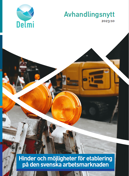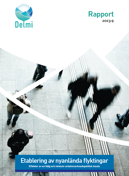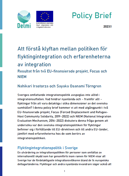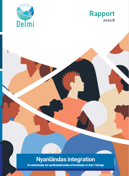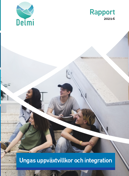Drawing on a survey of public opinion on refugee integration, this Policy Brief compares attitudes in Sweden with those in Austria, Germany, and Italy. The survey focuses on perceptions of refugees from outside Europe and Ukraine, with fieldwork conducted in small and medium-sized towns as well as rural areas (hereafter referred to as "smaller towns").
The Policy Brief is part of the EU-funded project "Exploring the Integration of Post-2014 Migrants in Small and Medium-Sized Towns and Rural Areas from a Whole of Community Perspective" (Whole-COMM, 2020-2024). This project analyzes the dynamics of integration among migrants who arrived in several European countries, including Sweden and Canada, after 2014 and settled in smaller towns.
Key conclusions and recommendations:
- Countering misinformation: The most consistent finding of the Whole-COMM study is the disparity in opinions regarding the integration of Ukrainians compared to non-European refugees. When the survey was conducted in 2023, there were no official statistics available on employment rates or other integration indicators for Ukrainian refugees in Sweden. In the absence of such data, public opinions may be shaped by subjective perceptions. Therefore, collecting reliable data on integration outcomes is critical for understanding how newcomers are faring in Sweden and for disseminating accurate information.
- Addressing racism and discrimination: The Policy Brief recommends the implementation of educational programs within school curricula, as well as public awareness campaigns to highlight refugees’ rights and experiences. These initiatives aim to combat racism, discrimination, and stigma, particularly those associated with individuals from the Middle East, and to foster stronger intergroup relationships and social cohesion.
- Fostering intergroup relations: The study shows that the nature and context of intergroup contact are key factors in shaping positive public opinion about refugees. Specifically, participation in recreational activities alongside newcomers significantly improves perceptions of them among the broader population in Sweden.
About the author
Nahikari Irastorza has a phd Humanities, i dagsläget lektor i University of Deusto, Spain och tidigare senior forskare på Malmö Institute for Studies of Migration, Diversity and Welfare (MIM)
This Policy Brief was published October 29th, 2024.

